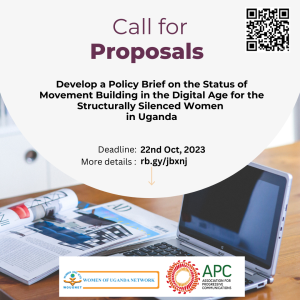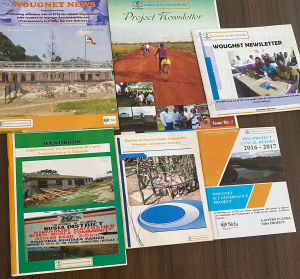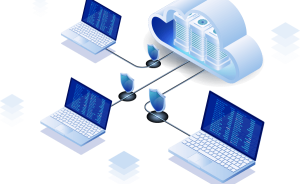Introduction
In an increasingly digital world, the importance of digital literacy and security cannot be overstated. For the community we work in, these skills are not only essential but also transformative. Through our project, we have witnessed firsthand the relevance and impact of digital literacy and security for the community, empowering its members and bridging the digital divide. In this blog, we delve into the significance of digital literacy and security and how they have made a tangible difference in the lives of those we serve.
The Relevance of Digital Literacy and Security
Digital literacy has opened up a world of information and knowledge for the community. By equipping individuals with the skills to navigate the internet and effectively search for information, we have empowered them to access crucial resources. From healthcare and education to job opportunities and government services, digital literacy enables community members to stay informed and make informed decisions. It reduces the barriers to accessing valuable information, particularly for those living in remote rural areas, ultimately improving their quality of life.
Digital literacy goes beyond access to information. It empowers community members to actively participate in the digital world. Through our digital literacy training, individuals have gained the skills to engage in online discussions, express their opinions, and advocate for their rights. By amplifying their voices in the digital sphere, they have become agents of change, contributing to social and political discourse. Digital literacy has fostered a sense of empowerment, ensuring that their voices are heard and their perspectives are taken into account. Aisha, UMWV states
One of the key benefits of digital literacy is its potential for economic empowerment. In our project, we have witnessed the transformative impact of digital skills on individuals’ economic prospects. By providing the community with digital literacy training, we have enabled them to access online job portals, engage in online business activities, and develop skills relevant to various industries. This has expanded their employment opportunities and income-generating potential, addressing the digital divide in terms of economic access. Digital literacy has become a gateway to economic independence and financial stability.
As community members venture into the digital world, ensuring their safety and security online becomes paramount. Through our project, we have emphasized the importance of digital security awareness. By educating individuals about online privacy, protecting personal information, and recognizing potential risks, we have equipped them to navigate online spaces safely. Digital security training has enabled them to protect themselves from scams, cyberbullying, and other online threats. This knowledge has instilled confidence and reduced the vulnerabilities associated with online interactions.
Digital literacy serves as a bridge across the digital divide, ensuring that no community member is left behind. By providing digital literacy training to individuals who may have had limited exposure to digital technologies, we are actively working towards digital inclusion. Bridging the digital divide means leveling the playing field and providing equal opportunities for all. The project has empowered community members to overcome barriers, fostering a sense of belonging and inclusion in the digital society.
Recommendations
Based on the project’s objectives and the outcomes achieved, here are some recommendations to further enhance and strengthen the impact of the project:
- Ensure the sustainability of the project’s outcomes by establishing partnerships and seeking long-term funding. Explore collaborations with local organizations, government agencies, and other stakeholders to continue providing support and resources to women’s rights organizations in rural areas. This will ensure the continued strengthening of logistics capacity and digital empowerment even after the project’s completion.
- Implement a robust monitoring and evaluation system to assess the effectiveness and impact of the project. Regularly collect data on the usage of mobile phones, internet connectivity, and digital skills acquired by the beneficiaries. This will help in identifying areas of improvement, measuring progress, and demonstrating the project’s success to stakeholders and potential funders.
- Consider scaling up the project by expanding the reach to more women’s rights organizations and communities in rural areas. Assess the feasibility of replicating the project in other regions or countries facing similar challenges. This will maximize the project’s impact and extend the benefits of digital literacy, access to information, and empowerment to a larger population.
- Foster collaboration and knowledge sharing among the women’s rights organizations and beneficiaries. Facilitate platforms for sharing best practices, lessons learned, and success stories. Encourage peer learning and create networks where organizations can support and learn from each other’s experiences in leveraging digital technologies for community development and responding to crises.
- Stay informed about the evolving needs and challenges faced by the community, particularly in response to the ongoing COVID-19 pandemic. Continuously adapt the project’s activities and trainings to address emerging issues and ensure they remain relevant and impactful. This may include incorporating new digital tools, providing updated information on health and safety guidelines, and addressing digital security concerns specific to the community.
- Use the project’s success and evidence-based insights to advocate for policies and initiatives that support digital inclusion, gender equality, and women’s rights. Engage with policymakers, civil society organizations, and relevant stakeholders to influence policies that promote digital literacy, access to technology, and the protection of women’s rights in the digital realm.
- Foster long-term empowerment by providing continued support and mentorship to the female staff members of the women’s rights organizations. Offer opportunities for further capacity-building, training, and skill development to ensure they continue to effectively use digital technology to advance their communities’ rights and respond to crises.
By implementing these recommendations, the project can further enhance its impact, sustain its outcomes, and contribute to the long-term empowerment and digital inclusion of women’s rights organizations and communities in rural areas of Uganda.
Conclusion
Digital literacy and security have proven to be of utmost relevance for the community we work in. Through our project, we have witnessed the transformative power of these skills, empowering individuals, improving their quality of life, and bridging the digital divide. Access to information, empowerment, economic opportunities, digital safety, and inclusion are the pillars on which our project stands. By promoting digital literacy and security, we are laying the foundation for a more equitable and empowered community, where every individual can harness the benefits of the digital world.
Written by Esther Nyapendi, Technical Support officer





